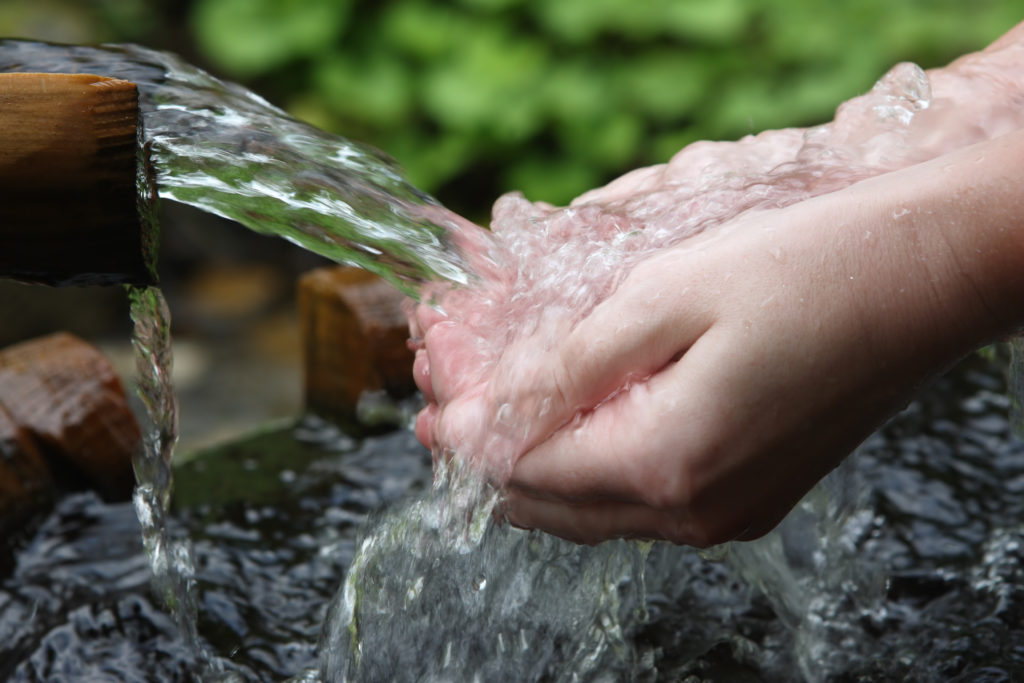One of the most important things you can do for your health is to pay attention to your water consumption. When it comes to water, quantity and quality both deserve your consideration. Need a reminder of why water is crucial for attaining optimal health?
In his book Effortless Healing: 9 Simple Ways to Sidestep Illness, Shed Excess Weight, and Help Your Body Fix Itself, Dr. Joseph Mercola reminds us that our bodies are approximately two-thirds water, overall. Our brains, cells, muscles, and organs are about 70 percent water. Water plays a big role in distributing nutrients and oxygen throughout our bodies, and it is the force behind ridding our bodies of waste. If these highlights aren’t enough, water also helps our bodies produce energy and keeps our joints lubricated.
Phew! That’s a long list of motivation to bring this habit into your life this month, dontcha’ think? One last factoid to consider… our bodies can survive just fine without food for numerous weeks, but deprive them of water, and we’ll be in trouble in a matter of days. Bam, go fill your glass right now, I can wait.
Back? Okay, let’s continue.
As for the question of what constitutes “plenty” of water, several factors come into play, and only you know the reality of your lifestyle. Your size is one thing to consider—the bigger the person, the more water they need. Next, how active are you? A person who goes for a jog around the block doesn’t need to replenish quite as much as someone training for a marathon. Other daily choices contribute to how much water you need as well, like how many cups of coffee or pints of beer you drink.
If you feel tired all the time, have cracked lips and dry skin, and have dark-colored urine, chances are good you need to up your water intake. More serious signs include headaches, constipation, and dealing with kidney stones regularly. Need another glass yet?
Onto the “healthy” factor of your water habit. If you live within the city limits and drink water right from the tap, it’s important to pay attention to the water quality reports they send out periodically. It may surprise you to know that it may contain health-robbing substances, such as lead, mercury, and arsenic. The Global Healing Center warns that even the chlorine used for sterilization becomes a problem, as it bonds with water to create hydrochloric acid, which is poisonous. While drinking tap water may be better than drinking soda or sports drinks, it is far from ideal.
When it comes to healthy water, Dr. Royal Lee promoted a focus on “unrefined” water in his 1958 article Ideal Drinking Water. Refined vs. unrefined water? Is there really such a thing? Yes. Well and spring water are unrefined—and thus, still contain valuable minerals from these natural environments. Once water has been distilled and/or reverse-osmosised, those minerals are removed, along with various other things. In other words, it becomes refined water.
You know you have the healthy stuff when it creates a buildup on your tea kettle. That build-up is from the calcium bicarbonate in unrefined hard water, and Lee believed this to be the most important mineral for your water to include. As he put it, “This kind of calcium is completely assimilated and builds bone by combining with the organic phosphorus found in cereals and lecithins of natural fats.”
This simple self-health habit could be the answer to many of your nagging little health concerns. Focus on drinking plenty of healthy water for a month and take note of your results.
Time to dig a little deeper. Check out these resources to find out if your water drinking habit is helping or hurting your health.
- J. Cahill, an Australian physician, wrote about the ill effects of fluoridating our water supply in 1962. The letter he wrote to the Medical Journal of Australia was printed under the title, Flouridation of Water Supplies, and discusses what he and several of his colleagues were witnessing in their patients, due to the addition of sodium fluoride in the water supply.
- One of “The Seven Deadly Fallacies of the Western Diet” Stephanie Anderson debunks in her book, Why Your Doctor Offers Nutritional Supplements, is the belief that chlorinated and fluoridated water is safe to drink.
- Not super thrilled with drinking straight water? There are Sexy Ways to Stay Hydrated!
Images from iStock/borgogniels (main), jirijura (post).



